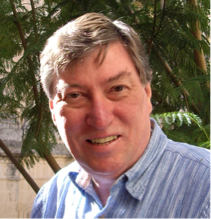Tropospheric Emissions: Monitoring of Pollution (TEMPO) and its Applications
TEMPO will launch in late 2022 to measure pollution of North America, from Mexico City to the Canadian tar/oil sands, and from the Atlantic to the Pacific, hourly and at high spatial resolution. TEMPO spectroscopic measurements in the ultraviolet and visible wavelengths provide a tropospheric measurement suite that includes the key gases of tropospheric air pollution chemistry. Measurements are from geostationary orbit, to capture the inherent high variability in the diurnal cycle of emissions and chemistry. A small product spatial footprint resolves pollution sources at a sub-urban scale. Together, this temporal and spatial resolution improves emission inventories, monitors population exposure, and enables effective emission-control strategies.
TEMPO takes advantage of a geostationary (GEO) host spacecraft to provide a mission that is capable of measuring the spectra required to retrieve O3, NO2, HONO, SO2, H2CO, C2H2O2, H2O, aerosols, cloud parameters, and Ultraviolet B (UVB) radiation. TEMPO thus can measure the major elements, directly or by proxy, in the tropospheric O3 chemistry cycle. Multi-spectral observations provide sensitivity to O3in the lowermost troposphere, reducing uncertainty in air quality predictions. It provides near-real-time air quality products that will be made widely and publicly available.
This talk describes the TEMPO instrument and several of the numerous applications of TEMPO measurements to public health and the environment.
Date and Time
Location
Hosts
Registration
-
 Add Event to Calendar
Add Event to Calendar
Loading virtual attendance info...
Speakers
 Dr. Kelly Chance
Dr. Kelly Chance
Tropospheric Emissions: Monitoring of Pollution (TEMPO) and its Applications
Biography:
Dr. Kelly Chance - Senior Physicist, Center for Astrophysics |Harvard & Smithsonian
Dr. Chance received his PhD in Chemical Physics from Harvard University. He has since concentrated on measurements of the earth’s atmosphere, and their analyses, from the ground, airplanes, balloons and, especially, from satellites. His research includes composition and radiative transfer; chemical astrophysics; molecular spectroscopy, and molecular structure and dynamics. He developed much of the algorithm physics for UV/visible/infrared gas measurements from space, performed algorithm development and implementation, and invented tropospheric ozone retrieval from nadir UV/VIS measurements. He performed the original SCIAMACHY and GOME sensitivity analyses, and has worked on a number of other earth-sensing satellites. He is the Tropospheric Emissions: Monitoring of Pollution (TEMPO) Principal Investigator. Publications are available at http://www.cfa.harvard.edu/atmosphere/publications.html.

